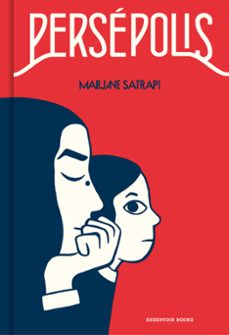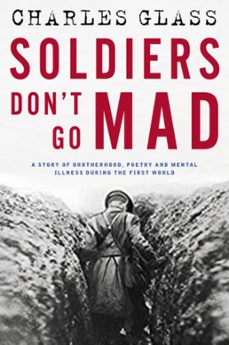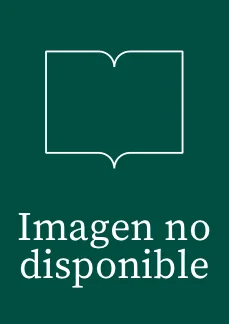Imprescindibles
Más vendidos Libros más leídos eBooks más leídos Todos los libros Todos los libros Autores destacados Series y sagas
Recomendados Libros recomendados Autores destacados Libros que inspiran Vidas con historia LGTBIQ+ English books
Ficción
Literatura Contemporánea Estudios literarios Clásicos Cuentos Poesía Teatro Libros de bolsillo Sagas literarias
Géneros literarios Novela romántica y erótica Novela negra Novela histórica Narrativa fantástica Novela de ciencia ficción Novela de terror Narrativa de humor Narrativa de viajes
No Ficción
Ciencias y tecnología Biología Ciencias Ciencias naturales Divulgación científica Informática Ingeniería Matemáticas Medicina Salud y dietas Formación Idiomas Estilo de vida Libros de Cocina Guías de viaje Narrativa de viajes Deportes Libros de Juegos Manualidades
Humanidades Autoayuda y espiritualidad Ciencias humanas Derecho Economía y Empresa Psicología y Pedagogía Filosofía Sociología Filología Biblioteconomía Estudios filológicos Estudios lingüísticos Estudios literarios Historia y crítica de la Literatura
Infantil
Juvenil
#Jóvenes lectores Narrativa juvenil Clásicos adaptados Libros Wattpad Libros Booktok Libros de influencers Libros de Youtubers Libros Spicy Juveniles Libros LGTBIQ+ Temas sociales Libros ciencia ficción Libros de acción y aventura Cómic y Manga Juvenil Cómic Juvenil Manga Shonen Manga Shojo Autores destacados Jennifer L. Armentrout Eloy Moreno Nerea Llanes Hannah Nicole Maehrer
Libros de fantasía Cozy Fantasy Dark academia Hadas y Fae Romantasy Royal Fantasy Urban Fantasy Vampiros y hombres lobo Otros Misterio y terror Cozy mistery Policiaca Spooky Terror Thriller y suspense Otros
Libros románticos y de amor Dark Romance Clean Romance Cowboy Romance Mafia y amor Romance dramatico Romcom Sport Romance Otros Clichés Enemies to Lovers Friends to Lovers Hermanastros Slow Burn Fake Dating Triángulo amoroso
Cómic y Manga
Novela gráfica Novela gráfica americana Novela gráfica europea Novela gráfica de otros países Personajes, series y sagas Series y sagas Star Wars Superhéroes Cómics DC Cómics Marvel Cómics otros superhéroes Cómics Valiant
Books in English
Books in English Fiction Non Fiction Comic Teen & Young Adult Main Authors Ken Follett Agatha Christie Stephen King Jane Austen Maggie O’Farrell On sale
Books in English for Young Adults Age 13+ Age 15+ Young Adult Authors Rebecca Yarros Sarah J. Maas Brandon Sanderson Ali Hazelwood Alice Oseman
Audiolibros
Literatura Contemporánea Narrativa fantástica Novela de ciencia ficción Novela de terror Novela histórica Novela negra Novela romántica y erótica Historia Historia universal
Humanidades Autoayuda y espiritualidad Ciencias humanas Economía y empresa Psicología y pedagogía Filosofía Infantil Audiolibros infantiles
Ciencia y tecnología Ciencias naturales Divulgación científica Medicina Salud y dietas Arte Cine Música Historia del arte
eBooks
Literatura Contemporánea Narrativa fantástica Novela de ciencia ficción Novela de terror Novela histórica Novela negra Novela romántica y erótica Juvenil Más de 13 años Más de 15 años Infantil eBooks infantiles
Humanidades Autoayuda y espiritualidad Ciencias humanas Economía y Empresa Psicología y Pedagogía Filosofía Historia Historia de España Historia Universal Arte Cine Música Historia del arte
Ciencia y tecnología Ciencias naturales Divulgación científica Medicina Salud y dietas Filología Estudios lingüísticos Estudios literarios Historia y crítica de la Literatura Estilo de vida Cocina Guías de viaje Ocio y deportes
Charles Glass
Recibe novedades de CHARLES GLASS directamente en tu email
Filtros
Del 1 al 4 de 4
Saqi Books 9780863567445
This is the Iraq war as it really started, amid lies, confusion and profound distrust between the United States and its Iraqi allies. Charles Glass, who first covered the Kurds in 1974 and was in Iraq for their failed rebellion in 1991, depicts the tense epoch that sowed the seeds of Americas inevitable failure there. The Northern Front is the dramatic eyewitness account of the machinations of Iraqi leaders - Ahmad Chalabi, Abdel Aziz Hakim, Massoud Barzani and Jelal Talabani - to control the country before their opponents seized the initiative. Glass recounts what went wrong when the US, with Britain in tow, imposed its will on a people unlikely to accept foreign designs for their future. He indicts international media conglomerates that failed to tell the truth when public debate could have prevented the deaths and destruction that came with war. Witty and absorbing Essential, and humbling, reading for all those pundits and commentators who think they understand what happened in Iraq. Malise Ruthven, author of A History of the Arab Peoples A vivid picture of the events leading up to the war and the chaos of the war itself. Ian Gilmour Should be mandatory reading for all wannabe foreign correspondents. Jonathan Randal A beautifully written account of the full sweep of the war and of what it was like to report on it. A starting-point for any proper understanding of the whole contentious business of the Iraq war. John Simpson In the finest tradition of radical reporting - anti-war, sympathetic, compassionate and enlightening. Phillip Knightley, author of The First Casualty
Ver más
eBook
Bedford Square Publishers 9781835010167
A brilliant and poignant history of the friendship between two great war poets, Siegfried Sassoon and Wilfred Owen, alongside a narrative investigation of the origins of PTSD and the literary response to World War IRecommended not only to psychiatrists but also to those with an interest in the complex relationships created by war and the management of traumaBritish Journal of PsychiatrySecond Lieutenant Wilfred Owen was twenty-four years old when he was admitted to the newly established Craiglockhart War Hospital for treatment of shell shock. A bourgeoning poet, trying to make sense of the terror he had witnessed, he read a collection of poems from a fellow officer, Siegfried Sassoon, and was impressed by his portrayal of the soldiers plight. One month later, Sassoon himself arrived at Craiglockhart, having refused to return to the front after being wounded during battle.As their friendship evolved over their months as patients at Craiglockhart, each encouraged the other in their work, in their personal reckonings with the morality of war, as well as in their treatment. Therapy provided Owen, Sassoon, and fellow patients with insights that allowed them express themselves better, and for the 28 months that Craiglockhart was in operation, it notably incubated the eras most significant developments in both psychiatry and poetry.Drawing on rich source materials, as well as Glasss own deep understanding of trauma and war, Soldiers Dont Go Mad tells for the first time the story of the soldiers and doctors who struggled with the effects of industrial warfare on the human psyche. As he investigates the roots of what we now know as post-traumatic stress disorder, Glass brings historical bearing to how we must consider wars ravaging effects on mental health, and the ways in which creative work helps us come to terms with even the darkest of times.
Ver más
eBook
Editorial Ariel 9788434418509
Una historia silenciada de la segunda guerra mundialEn la segunda guerra mundial, más de 150.000 soldados aliados desertaron. Ésta es la historia desconocida de algunos de esos hombres corrientes en
Ver más
Tapa dura
Del 1 al 4 de 4





























